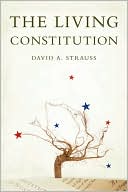Category Books
- Fiction Books & Literature
- Graphic Novels
- Horror
- Mystery & Crime
- Poetry
- Romance Books
- Science Fiction & Fantasy
- Thrillers
- Westerns
- Ages 0-2
- Ages 3-5
- Ages 6-8
- Ages 9-12
- Teens
- Children's Books
- African Americans
- Antiques & Collectibles
- Art, Architecture & Photography
- Bibles & Bible Studies
- Biography
- Business Books
- Christianity
- Computer Books & Technology Books
- Cookbooks, Food & Wine
- Crafts & Hobbies Books
- Education & Teaching
- Engineering
- Entertainment
- Foreign Languages
- Game Books
- Gay & Lesbian
- Health Books, Diet & Fitness Books
- History
- Home & Garden
- Humor Books
- Judaism & Judaica
- Law
- Medical Books
- New Age & Spirituality
- Nonfiction
- Parenting & Family
- Pets
- Philosophy
- Political Books & Current Events Books
- Psychology & Psychotherapy
- Reference
- Religion Books
- Science & Nature
- Self Improvement
- Sex & Relationships
- Social Sciences
- Sports & Adventure
- Study Guides & Test Prep
- Travel
- True Crime
- Weddings
- Women's Studies
The Living Constitution »

Authors: David A. Strauss
ISBN-13: 9780195377279, ISBN-10: 0195377273
Format: Hardcover
Publisher: Oxford University Press, USA
Date Published: May 2010
Edition: (Non-applicable)
Author Biography: David A. Strauss
David A. Strauss is the Gerald Ratner Distinguished Service Professor of Law at the University of Chicago, and one of the nation's leading constitutional law scholars. He has also served as Special Counsel to the United States Senate Judiciary Committee and Assistant Solicitor General of the United States, and argued eighteen cases before the United States Supreme Court. David Strauss is an editor of the Supreme Court Review.
Book Synopsis
Supreme Court Justice Antonin Scalia once remarked that the theory of an evolving, "living" Constitution effectively "rendered the Constitution useless." He wanted a "dead Constitution," he joked, arguing it must be interpreted as the framers originally understood it.
In The Living Constitution, leading constitutional scholar David Strauss forcefully argues against the claims of Scalia, Clarence Thomas, Robert Bork, and other "originalists," explaining in clear, jargon-free English how the Constitution can sensibly evolve, without falling into the anything-goes flexibility caricatured by opponents. The living Constitution is not an out-of-touch liberal theory, Strauss further shows, but a mainstream tradition of American jurisprudence—a common-law approach to the Constitution, rooted in the written document but also based on precedent. Each generation has contributed precedents that guide and confine judicial rulings, yet allow us to meet the demands of today, not force us to follow the commands of the long-dead Founders. Strauss explores how judicial decisions adapted the Constitution's text (and contradicted original intent) to produce some of our most profound accomplishments: the end of racial segregation, the expansion of women's rights, and the freedom of speech. By contrast, originalism suffers from fatal flaws: the impossibility of truly divining original intent, the difficulty of adapting eighteenth-century understandings to the modern world, and the pointlessness of chaining ourselves to decisions made centuries ago.
David Strauss is one of our leading authorities on Constitutional law—one with practical knowledge as well, having served as Assistant Solicitor General of the United States and argued eighteen cases before the United States Supreme Court. Now he offers a profound new understanding of how the Constitution can remain vital to life in the twenty-first century.
Publishers Weekly
The concept of a “living Constitution” that evolves over time is not a formula for untethered judicial activism but a necessary—and venerable—mode of interpretation, argues this scintillating treatise. University of Chicago law prof Strauss mounts a devastating attack on “originalism” (the doctrine most vociferously advocated by Supreme Court Justice Antonin Scalia) that constitutional law should hew to the written Constitution and the intent of its framers; such an approach, Strauss argues, is rife with contradictions, fraudulent history (it's often impossible to know what the framers meant or how they might think about modern-day issues), and ideological bias. The more fruitful—and historically dominant—interpretive school of living constitutionalism, he contends, follows a tacit common-law approach focused less on the text than on judicial precedent and changing notions of fairness and sound policy. Strauss offers meticulous accounts of how common-law processes revolutionized the consensus on core constitutional issues like freedom of speech and civil rights; indeed, he insists, they can transform our understanding of the Constitution more profoundly than formal amendments do. Writing in prose that laymen will find lucid and inviting, Strauss makes the usually fuzzy idea of a living Constitution rigorous and substantive. (May)
Table of Contents
Introduction: Do We Want A Living Constitution?
Chapter One: Originalism and Its Sins
Chapter Two: The Common Law
Chapter Three: Freedom of Speech and the Living Constitution
Chapter Four: Brown v. Board of Education and Innovation in the Living Constitution
Chapter Five: Common Ground and Jefferson's Problem
Chapter Six: Constitutional Amendments and the Living Constitution
Subjects
 American History
American History  United States History - 18th Century - General & Miscellaneous
United States History - 18th Century - General & MiscellaneousHistory
 American History
American History  United States History - General & Miscellaneous
United States History - General & MiscellaneousHistory
 Political History
Political History  United States Politics & Government
United States Politics & GovernmentLaw
 Constitutional Law
Constitutional Law  Constitutional History
Constitutional HistoryLaw
 Constitutional Law
Constitutional Law  U.S. Constitution
U.S. ConstitutionNonfiction
 Law
Law  Constitutional Law
Constitutional LawPolitical Books & Current Events Books
 United States Politics
United States Politics  U.S. Politics - General & Miscellaneous
U.S. Politics - General & MiscellaneousPolitical Books & Current Events Books
 All Politics
All Politics  United States Politics & Government
United States Politics & GovernmentNonfiction
 History
History  American History
American HistoryNonfiction
 History
History  Political History
Political HistoryNonfiction
 Politics & Current Affairs
Politics & Current Affairs  United States Politics
United States PoliticsNonfiction
 Politics & Current Affairs
Politics & Current Affairs  All Politics
All PoliticsPolitical Books & Current Events Books
 Law
Law  Constitutional Law
Constitutional Law
